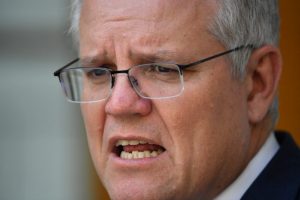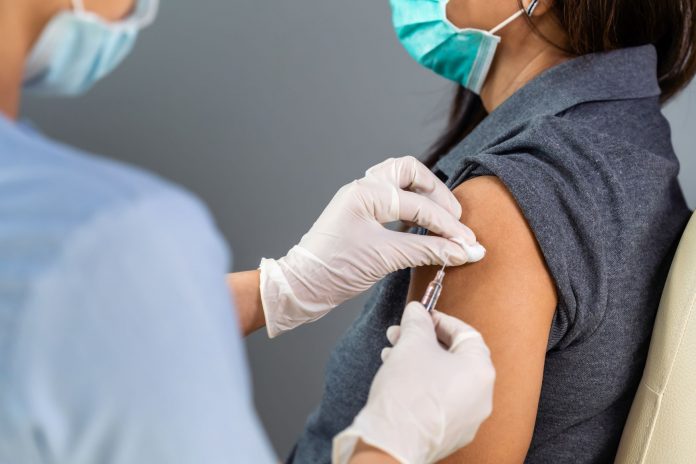The federal government has brought forward the rollout of a vaccine for COVID-19 by a couple of weeks to early March.
The previous timetable was for late March.
“In the same way that medical advice has allowed us to bring forward the time from the first half of the year to late March, and now early March, we will be guided by the medical advice,” Health Minister Greg Hunt said.
Mr Hunt also said the rollout would begin with the vaccination developed by Pfizer and Germany’s BioNTech, with priority being given to front line workers in health care, hotel quarantine and border management.
Elderly people in aged care homes will also be amongst the first Australians to get the jab, pending its approval by Australia’s Therapeutic Goods Administration.
In an interview published Wednesday, Mr Hunt also said up to 80,000 doses a week would arrive in Australia from later this month.
The second major vaccine candidate – developed by AstraZeneca and Oxford University – was expected to be available for use in Australia in March.
Both vaccines are already being distributed in the UK.
PM Scott Morrison said the vaccines were being used in emergency situations overseas and a number of countries were reporting “quite a few problems” with the rollout.
“We have our scheduled timetable,” Mr Morrison said.
“We are moving as swiftly and safely as can be done.
“Australia is not in an emergency situation … so we don’t have to take unnecessary risks.”
The first vaccines are expected to be approved later this month, with Mr Morrison saying Australia would be “well into the vaccine” in the first quarter of the year.
He said it was important all Australians had “total confidence” in the vaccines.
The prime minister’s comments came as Victoria recorded three locally-acquired cases of COVID-19 and NSW revealed four new cases.
Three NSW regional communities are on alert after an 18-year-old Berala man travelled through Orange, Nyngan and Broken Hill on a camping trip, then tested positive.
The federal government is facing questions about why vaccines it has ordered have not yet been given regulatory approval and rolled out, despite some of them being used overseas.
Former PM Malcolm Turnbull says there is a case to be made for not waiting until the government’s target.
Mr Turnbull tweeted on Tuesday the rollout should be accelerated, basing his comments on the advice of Professor Raina Macintyre, one of the world’s leading infectious diseases experts.
Prof Macintyre has produced a 30-minute YouTube video in which she explains why health workers, aged care workers and border control staff should be vaccinated as soon as possible, and sets out the requirements for a best practice rollout in Australia.
She also argues for a greater range of vaccines to be purchased.
“Prof Raina Macintyre makes powerful case for accelerating vaccination and NOT waiting until March,” Mr Turnbull tweeted.
Labor health spokesman Chris Bowen said the opposition would be keeping up pressure on the government to explain how Australia fell behind in the vaccine queue.
He pointed to reports of a new government advertising campaign as evidence of putting spin ahead of delivery.
More than 13 million vaccine doses have so far been administered across 33 countries.
Australia has agreements with Pfizer-BioNTech, Oxford-AstraZeneca and Novavax.
The AstraZeneca vaccine is being made in Melbourne by CSL.
Meanwhile, Mr Morrison (pictured) said he had spoken with the Victorian government to discuss ways to fast-track the movement of people across borders.

He hinted if a hotspot model was used – based on virus data from local wastewater research in NSW and Victoria – it would allow the smoother flow of people.
“That is an opportunity for the Victorian government to work through those issues … we’ll see if we can get a better pathway home for Victorians.”
Mr Morrison rejected a Labor call for the national cabinet to meet sooner than the scheduled gathering in early February, saying he was in regular contact with premiers and health experts were meeting daily.
He also dismissed a call for mandatory testing of all people seeking to return from overseas, saying the 14-day mandatory quarantining on return was appropriate.
“We want everyone (who returns) to behave like they’ve got it.”





